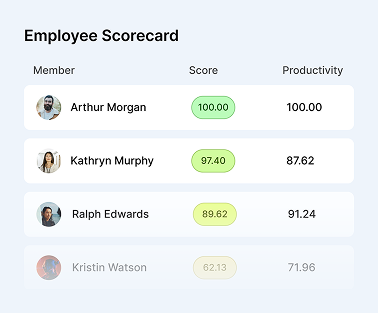How to Develop Leadership Skills (The Right Way)
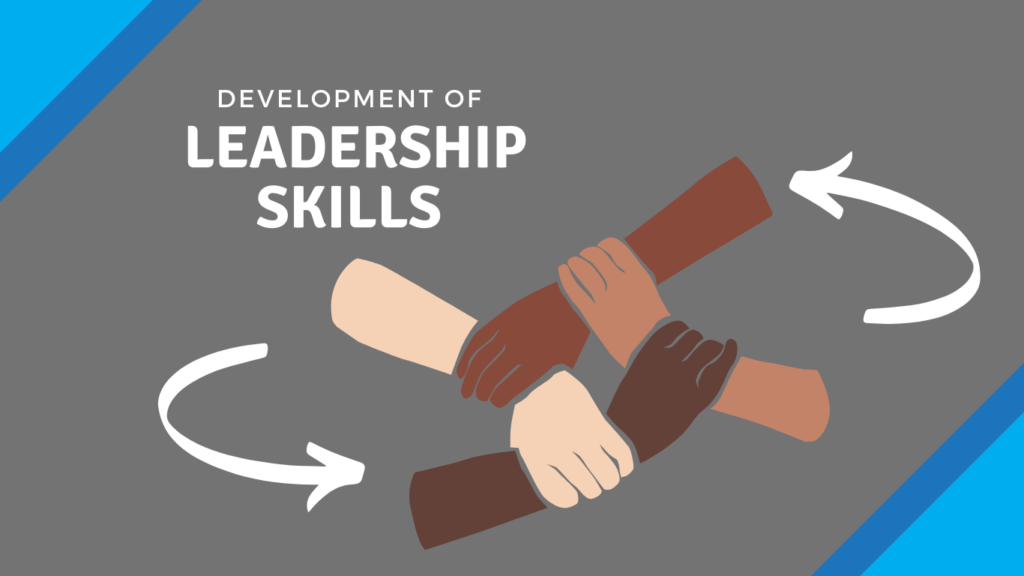
Leadership skills are important for anyone who wants to be successful. Especially, as a manager, these skills will help you to reach your goals, and those of your team.
However, how can you effectively develop leadership skills? Is there a guidebook to follow? Some type of IKEA-build-your-leadership-skills manual?
Let’s find out!

What is Leadership
For starters, can we explain what is leadership with an exclusive concept? Are all leaders the same? Is leadership set in stone?
No, no, and no.
There is a myriad of theories regarding how leadership works, what makes successful leaders, all the leadership styles, and how to be effective in the field of leadership.
One thing is clear, leadership is one of the most sophisticated and multifaceted topics, and it has been extensively researched over the years. Indeed, in today’s fast-paced and increasingly globalized society, leadership is more important than ever.
In spite of this topic being constantly studied, due to the subject’s intricacy, leadership continues to elicit fascinating and exciting debate.
Leadership Evolution and Theories
Leadership hasn’t changed, but our understanding of it has. It’s vital to realize why different leadership styles might be successful.
Furthermore to also understand the differences between leadership styles. The reason why they don’t work in every instance, and which style matches your personality best.
Yes, leadership has been studied for centuries, which led to a handful of leadership theories broadly covered down below:
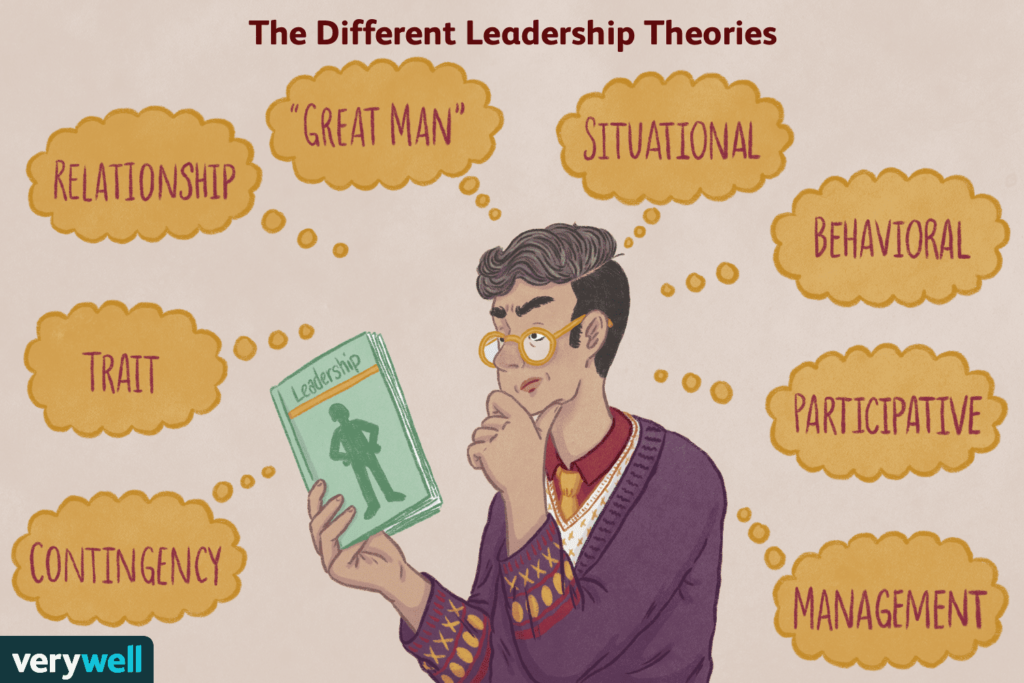
Classical Leadership Theories
These theories were developed in the early 1900s and focused on rational decision-making and heroic leaders who were born with natural qualities.
Behavioral Leadership Theories
This era emerged in the 1950s, and it was based on the idea that leaders are made, not born. It focused on how leaders could change their behavior to be more effective.
Contemporary Leadership Theories
This theory is still unfolding. It is based on the idea that leadership is a social process that emerges from relationships. It focuses on power dynamics, trust, and ethics. We can read subdivisions below:
New Leadership Era: Transactional and Transformational theories (1990s – 2000s)
- In the transactional leadership theory, the leader is mainly concerned with getting things done efficiently and effectively. The focus is on the task, and relationships are transactional (based on exchange).
- In the transformational leadership theory, the leader is mainly concerned with inspiring and motivating followers to do their best. The focus is on people, and relationships are transformational (based on mutual respect and admiration).
Elon Musk, CEO of Tesla Motors and SpaceX, as well the head of Mars colonization is an excellent example of a transformational visionary leader, always showing great vision, dedication, and perseverance.
Consequently, he is not only concerned with getting things done efficiently and effectively but he is also concerned with inspiring and motivating others to do their best.

So, What Exactly is Leadership
Before you can develop leadership skills, it’s important to understand the concept of leadership. In common sense, leadership is about motivation and the achievement of common goals.
Linda Hill, a professor at Harvard Business School, defines leadership as: “the process of mobilizing people to achieve a common purpose .” For John C. Maxwell leadership is not about titles, positions, or flowcharts. In fact, it’s about one life influencing another.
Take into account leadership is not a one-time event; it’s something you need to constantly work on.

Leadership is not about position or rank, it’s about getting things done through people.
Leadership is about setting an example and making things happen. Effective leadership holds great communication skills and builds relationships with others. Leadership embrace change!
Yet, there is no one definition or particular leadership approach that is considered universal. Still, efforts continue to identify what makes an effective leader.
Let’s wrap it up! Leadership is not about:
- Giving orders
- Being in charge
- Having a position of authority
- Doing all the work yourself
Leadership Vs Management
The terms “leadership” and “management” are often used interchangeably, but there is a big difference between the two.
Leadership is essential for the success of any business. In reality, there has been a shift in emphasis on human capital and organizational management. But what is the difference between leadership and management?
- Managers maintain order and stability in an organization by monitoring and controlling performance, whereas leaders are thought of as visionaries and strategists.
In fact, some academics say that leaders and managers have separate responsibilities, while others claim that leadership and management are mutually supportive and would be difficult to distinguish in practice.
If we look at the graphic below we can see there is a point of encounter between these two!
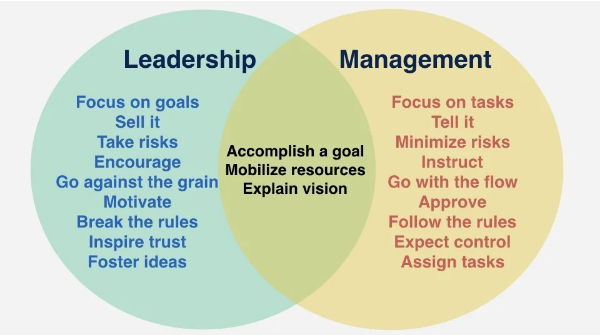
- Leadership is more about people and relationships, while management is more about tasks and efficiency.
Why Develop Leadership Skills?
Leadership skills are important for a number of reasons.
According to research, leadership training participants enhanced their learning capacity by 25% and performance by 20%. Many of these programs not only cover leadership theory and practice but also how they may be applied in the workplace.
It’s no wonder why leadership training investments were estimated at $357.7 billion worldwide in 2020, with $165.3 billion just in North America! Yet, organizations are still struggling to improve the way they train future leaders.
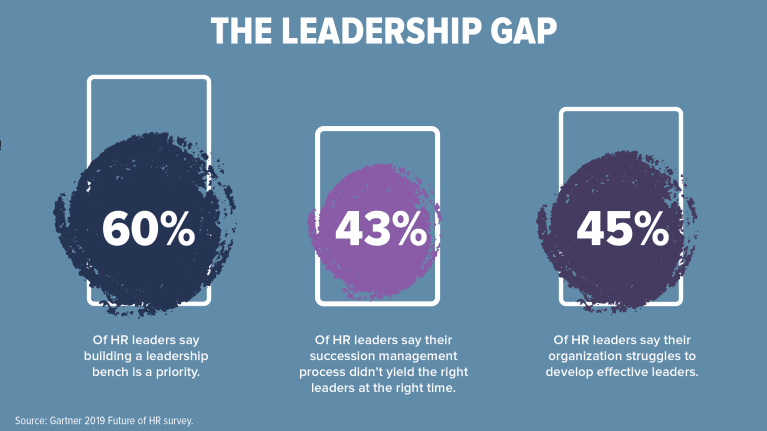
- Leadership skills are important for your personal goals. Leaders are more likely to be successful than non-leaders, and they often enjoy better career prospects.
- Leaders also tend to be more influential and respected than those who don’t have strong leadership skills. In addition, leadership skills can help you achieve your professional goals.
- Leadership skills can help you in your career by making you a more successful manager or executive.
- Leaders are more likely to be promoted and have successful careers than those who don’t have strong leadership skills.
Core Leadership Skills
There are a number of core leadership skills that are essential for anyone who wants to become a successful leader.
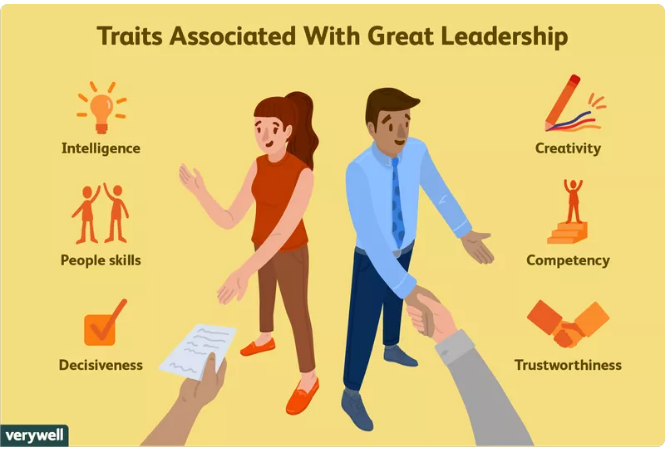
These skills include:
Visioning: Leaders need to be able to see the big picture and have a clear vision for the future.
One of the most important aspects of leadership is having a clear vision for the future. Leaders need to be able to see beyond the present and identify what they want their organization or team to achieve.
They also need to have a strong understanding of their industry and what is going on in the world around them so they can anticipate changes and trends.
Strategy: Leaders need to develop and implement a strategy that will achieve their vision.
Once they have a clear vision, leaders need to develop a strategy that will help them achieve it. This strategy needs to be achievable, realistic, and flexible so that it can adapt to changes.
Leaders need to be able to implement this strategy and make sure it is being followed.
Planning: Leaders need to create a plan of action and put it into effect.
In order for their strategy to succeed, leaders need to put a plan into action and make sure it is executed properly. This plan should include specific goals, objectives, and tasks along with a timeline for completion.
Teamwork: Leaders need to be able to work with others and get the most out of their team.
It is also important to assign specific roles and responsibilities to ensure that everyone knows what they need to do. Teamwork is a very important leadership attribute.
Leaders must develop the skill to effectively motivate team members and get the best out of them.
Problem-Solving: Leaders need to be able to identify and solve problems.
Leaders often face difficult challenges and problems that need to be resolved quickly. They need to have the ability to identify the root cause of the problem and find a solution.
Problem-solving skills are essential for leaders as they help them make better decisions and resolve conflicts.
Develop Leadership Skills
First of all, get to work! You won’t develop leadership skills if you don’t practice. The more you practice, the better you will become at leading others. Be patient and don’t expect too much too soon. Leadership takes time!
Taking Initiative
Leaders are always looking for ways to improve their organization or team and they aren’t afraid to try new things.
When you take the initiative, you are showing that you are willing to work hard and be proactive. You are also indicating that you have a strong desire to succeed.
Select a Leadership Style
Leaders have a wide range of techniques to lead teams and organizations successfully. Choose a leadership style that goes with your past experiences, future goals, and the company’s mission.
Training Programs and Courses
There are a number of training programs available that can help you develop your leadership skills.
These programs often cover topics such as:
- Leadership theory
- Leadership styles
- How to lead change
- Conflict management
- Negotiation skills
- Leading teams
- Coaching and mentoring

The Young Leaders of the Americas Initiative (YLAI)
This a great leadership program to empower emerging entrepreneurs from the Western Hemisphere to enable the full economic potential of the region’s citizens.
The YLAI promotes U.S. business models, increases trade, encourages job creation, and builds lasting and sustainable networks of young entrepreneurs and business and social leaders across Latin America, the Caribbean, Canada, and the United States.
Leadership programs should be interactive and focus on real-world scenarios, providing participants with the opportunity to learn from experienced instructors and network with other professionals.
Leadership Books
There are a number of leadership books available that can help you develop your skills. The Leadership Challenge is a great book that provides tips and techniques for becoming an effective leader. It covers topics such as:
- Leadership vision
- Inspiring others
- Building trust
- Creating a team culture
There are also many online resources available that can help you develop your leadership skills. The Leadership Development Resource Center is a good example. It offers a variety of resources, including:
- Articles
- Ebooks
Polish Your Hard Skills
When individuals are stumped on a project and don’t know what to do next, they will look to their leader for assistance. Team members expect their leaders to be able to give good answers based on their experience and expertise.
If they are unable to do so or frequently disappoint the team, they may lose confidence in their leader. A project leader must have strong hard skills and a thorough understanding of the overall initiative.
Find a mentor
Even if you are already a manager, look for someone to mentor you. Especially if this person is a senior or has been involved in leadership initiatives or big projects!
Self-reflection
If you’ve committed to improving your leadership skills and have implemented any of the techniques suggested above, make time for personal reflection into your weekly routine.
Identifying areas for improvement and what you could have done better by reflecting on specific events and how you handled them might help you spot ways to improve.
Now, let’s follow some tips to become a great leader!
Advice for Managers Who Are Also Great Leaders
Be a Good Role Model
The best way to become a good leader is by being a good role model. Followers watch everything a leader does and copy their behavior. If you want your followers to be motivated and inspired, you need to set an example.
Be Honest and Transparent
Lead by example and always be honest with your followers. Transparency builds trust, which is essential for any relationship, including the one between a leader and their followers.
When followers know that they can trust their leader, they are more likely to be loyal and productive.
Get Involved in Community or Charity Work
Volunteering for a good cause will help you develop your people skills and learn how to motivate others.
Network With Other Leaders
Meeting other leaders will help you learn from their experiences and get advice on people who are naturally gifted leaders, but for most of us, leadership skills need to be learned and practiced.
Some Tips on How to Practice Your Leadership Skills
- Be decisive: When you’re faced with a decision, don’t hesitate. Make a decision and stick to it.
- Become assertive: Stand up for what you believe in and don’t be afraid to speak up.
- Find Courage: Don’t be afraid to take risks and challenge the status quo.
- Be Empathetic: Put yourself in other people’s shoes and try to understand their perspectives.
- Practice humility: Admit your mistakes and learn from them.
Leadership Compass
Accordingly, to be an effective leader, you need to understand your own strengths and weaknesses. As well as the strengths and weaknesses of the people you are leading.
The Leadership Compass draws from the Native American Indian tradition of the Medicine Wheel or the Four-Fold Way. In the Four-Fold Way, the four directions are described as a warrior (North), healer (South), teacher (West), and visionary (East).
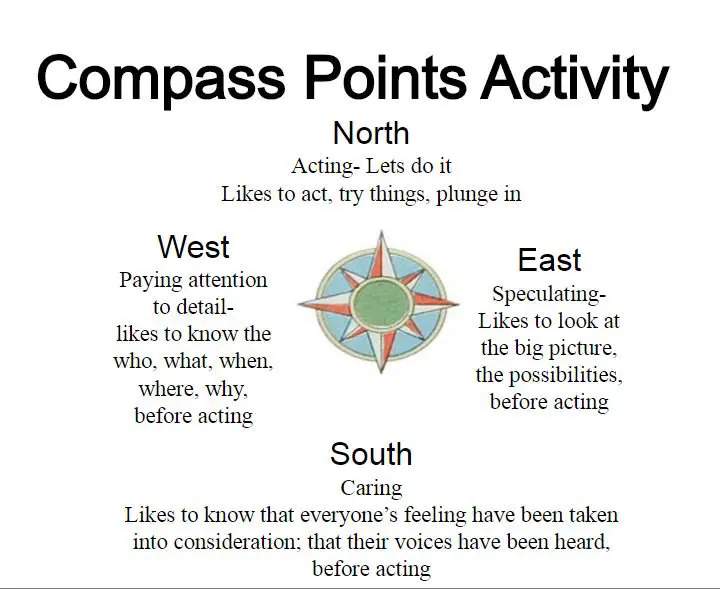
The Leadership Compass can help you identify your strengths and weaknesses as a leader. It can also help you find opportunities to improve your skills.
You can use the Leadership Compass to:
- Assess your current leadership skills
- Identify areas where you need to improve your skills
- Understand which leadership styles work best for you
- Measure your progress as a leader
Leadership Styles: Who Are You?
While there are many different leadership styles, most leaders use one or more of the following styles:
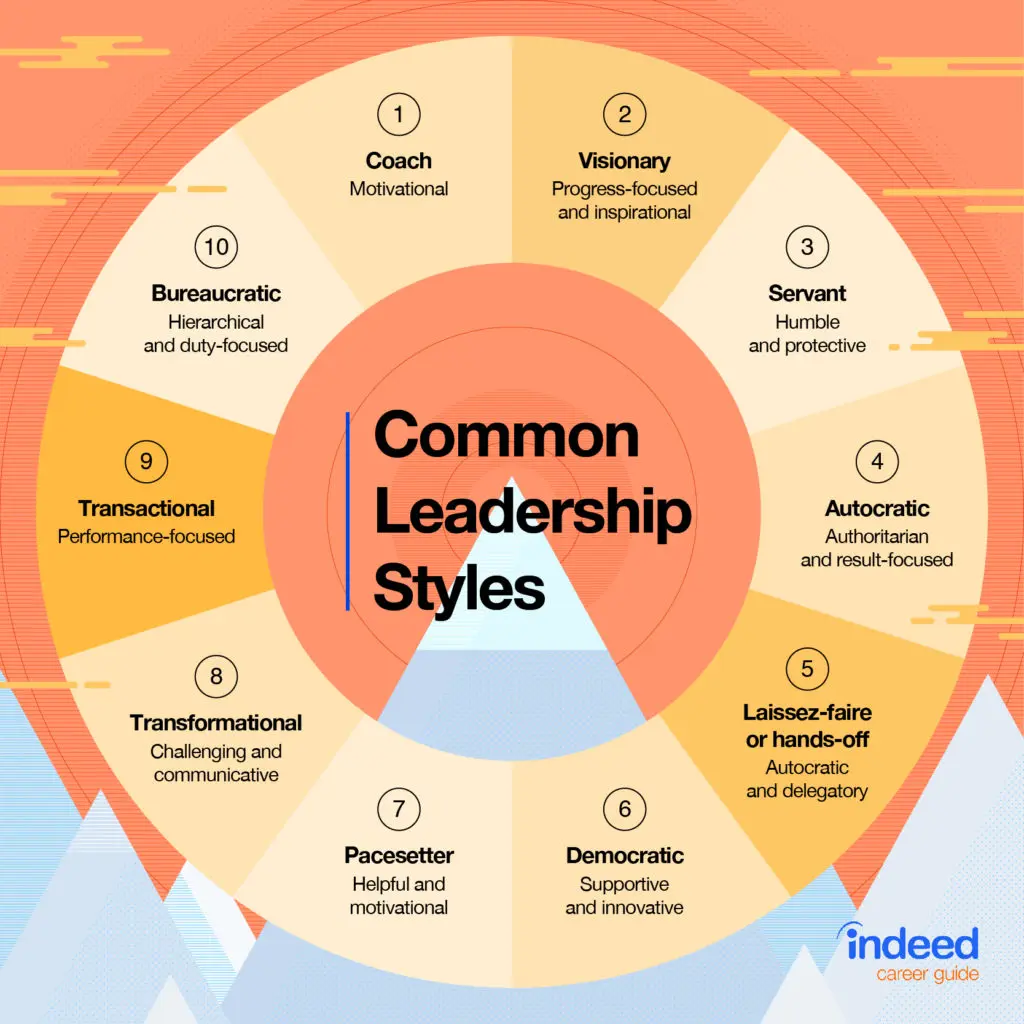
Commanding Leadership Style
This type of leadership is based on the belief that leaders should give orders and control the work environment. This style is often used in military organizations and businesses where strict rules and regulations are needed.
Coaching Leadership Style
This type of leadership is based on the belief that a coaching leader should help their team members reach their full potential. Coaching leaders provide support and guidance to their team members to achieve key skills, and they often have a lot of knowledge and experience to share.
Autocratic Leadership Style
This type of leadership is based on the belief that leaders should make all the decisions and control everything. Autocratic leaders often have a lot of power and they usually don’t tolerate opposition.
Participative Leadership Style
This type of leadership encourages input from employees and relies on consensus to make decisions. Participative leaders believe that employees should be involved in decisions that affect them.
Laissez-Faire Leadership Style
This type of leadership is based on the belief that employees should be allowed to work independently. Laissez-faire leaders believe that employees are best suited to make decisions about their work.
Democratic Leadership Style
This style of leadership is based on the belief that leaders should consult with employees before making decisions. Democratic leaders believe that employees should have a say in how their work is done.
Strategic Leadership Style
This type of leadership is based on the belief that leaders should plan for the future and make long-term decisions. Strategic leaders are often responsible for setting goals and directing the organization towards them.
Charismatic Leadership Style
This type of leadership is based on the belief that leaders should be inspiring and persuasive. Charismatic leaders are often able to get people to follow them without using force or threats.
Servant Leadership
This style of leadership is based on the belief that leaders should serve their employees and put their needs first. Servant leaders often work hard to improve the quality of life for their employees.
Leadership Lessons You Can Learn From a Roman Emperor
One of the best ways to learn about leadership is to study the lives of successful leaders.
Consequently, the life of Marcus Aurelius, a Roman emperor who ruled from 161-180 AD, offers a number of valuable lessons on leadership.
Here are some of the key lessons you can learn from Marcus Aurelius:
- Leadership is not about power or status. It’s about using your power and status for the benefit of others.
- Leadership is about making a positive difference in the world. Marcus Aurelius was known for his wisdom and compassion, and he used his position to help others.
- Leadership is a journey, not a destination. As Marcus Aurelius said, “The journey is my home.” This means that you should never stop learning and growing as a leader.
- Leadership requires self-awareness. Marcus Aurelius was aware of his strengths and weaknesses, and he worked hard to improve himself as a leader.
- Leadership is about serving others. Marcus Aurelius was always focused on what was best for his people, and he worked hard to help them achieve their goals.
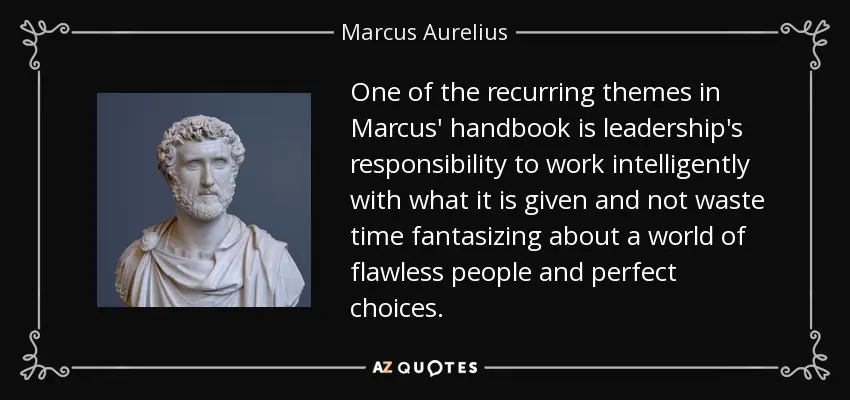
- “Meditations”, a series of the personal introspections and thoughts of the Roman Emperor Marcus Aurelius, is a great source for self-evaluation, guidance, and self-improvement. You can purchase it here.
Conclusion: Achieve Your Goals And Dreams
Leadership skills can help you in your personal life by teaching you how to achieve your goals and dreams. Also can help you in your professional life by making you a more successful manager or executive.
Therefore, when you develop leadership skills you become a better problem solver and decision-maker.
Lastly, leadership skills can help you become more adaptable and flexible in the workplace. This is important, as the workplace is constantly changing and evolving!
– The Monitask Team
